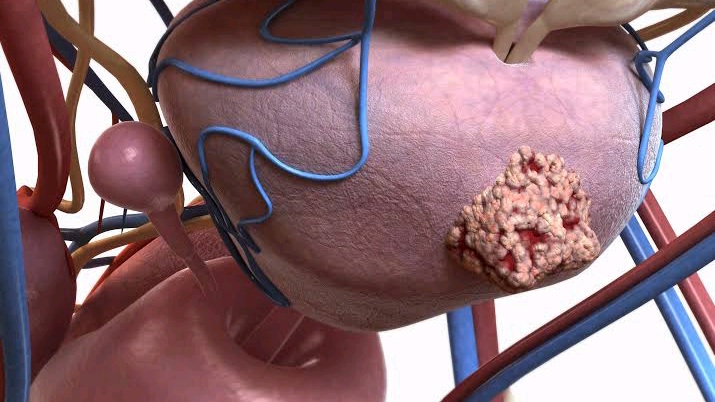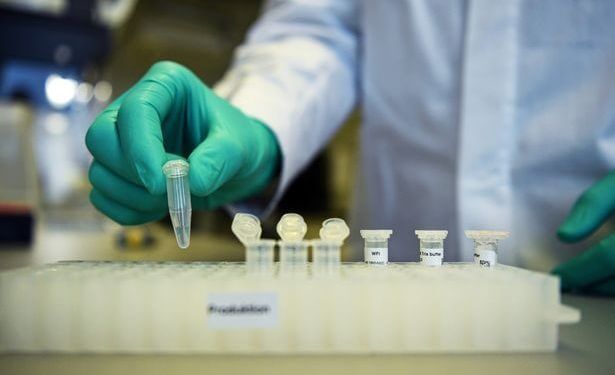
Prostate cancer is globally known as one of the cancerous diseases that mostly affect men above the age of 40. The disease which only affects men occurs when abnormal cells in the prostate gland grow in an uncontrolled way, forming a malignant tumour.
It is often referred to as the “silent killer,” because it can develop without presenting noticeable symptoms. This stealthy nature makes it challenging to detect and diagnose until it has reached advanced stages. Health experts say one out of every eight men above the age of 65 years suffers from prostate cancer disease.
Statistics on prostate cancer indicate that in 2020 alone, an estimated 375,304 people worldwide died from prostate cancer.
Although the disease is not an endemic condition in which prevalence is assessed in days, Africans or ‘Blacks’ are the most likely to have prostate cancer of all races.
Prostate cancer like other diseases can transverse to a more serious stage where treatment becomes difficult and can lead to death at that stage.
A man suffering from prostate cancer who fails to seek medical support on time can have the cancer spreading outside the prostate to nearby parts of the body or glands close to the prostate.
Also, metastatic prostate cancer which is the extreme stage of prostate cancer can spread to distant parts of the body if the affected person decides not to be on medication due to ignorance or lack of financial assistance.
The Ghana Report in an exclusive interview with Dr. Pansy Caleb Biya Boadi of Akuse Government Hospital and Charlotte Naa Amerley Amartey a dietician, shared some intriguing insights on prostate cancer. According to them, it can be preventable if men make a conscious effort to undergo medical examination on prostate cancer and eat healthy food.
“In medicine, there is a quote or maxim we make about prostate cancer and hyperplasia, and that is, ‘many die with it than of it‘ which is to say many men may have it undetected and asymptomatic until their death from other causes,” said Dr. Pany.
“Awareness, voluntary screening, and cutting-edge diagnostics have made its detection more common, leading to an increased prevalence.”
There are several myths surrounding prostate cancer in men, however, Dr. Pansy concluded that there are some factors that may be true.
Dr. Pansy addressing the misconception on whether regular sex can save a man from developing prostate cancer said there is no concrete evidence to back this claim. However, studies among limited groups purport to have a correlation between the two, with the explanation being that the process of ejaculation may help reduce prostate cancer in men.
There are various factors that can lead to prostate cancer in men.
Causes
“Mostly, prostate cancer tends to increase more among men above 40 years. Family history of prostate cancer, breast or ovarian cancer, especially BRCA1 and BRCA2 gene mutations sometimes is a clear indication that men within such families are likely to suffer from prostate cancer”, the health expert noted.
Symptoms
There are some signs a man exhibits that can tell that he is developing prostate cancer. Some symptoms of the deadly prostate cancer are frequent urination, pain while urinating, blood in the urine or semen, weak legs or feet, incomplete voiding, dribbling, weight loss, and back pain in advanced cases.
Prevention
Dietician Naa Amerley spoke extensively on the possible ways men can prevent prostate cancer aside from the genetic causes.
“Some remedies to reduce the risk of prostate cancer include adopting a healthy lifestyle generally including exercising, avoiding smoking, and reducing alcohol intake. Eating food in its natural state rather than food that undergoes so much processing can also help to prevent prostate cancer”.
Moreover, prostate cancer patients were advised to comply with their healthcare givers’ instructions and report any concerns or new developments on time before any further implications.
Source: Ghanareport

This article is published by either a staff writer, an intern, or an editor of TheAfricanDream.net, based on editorial discretion.


